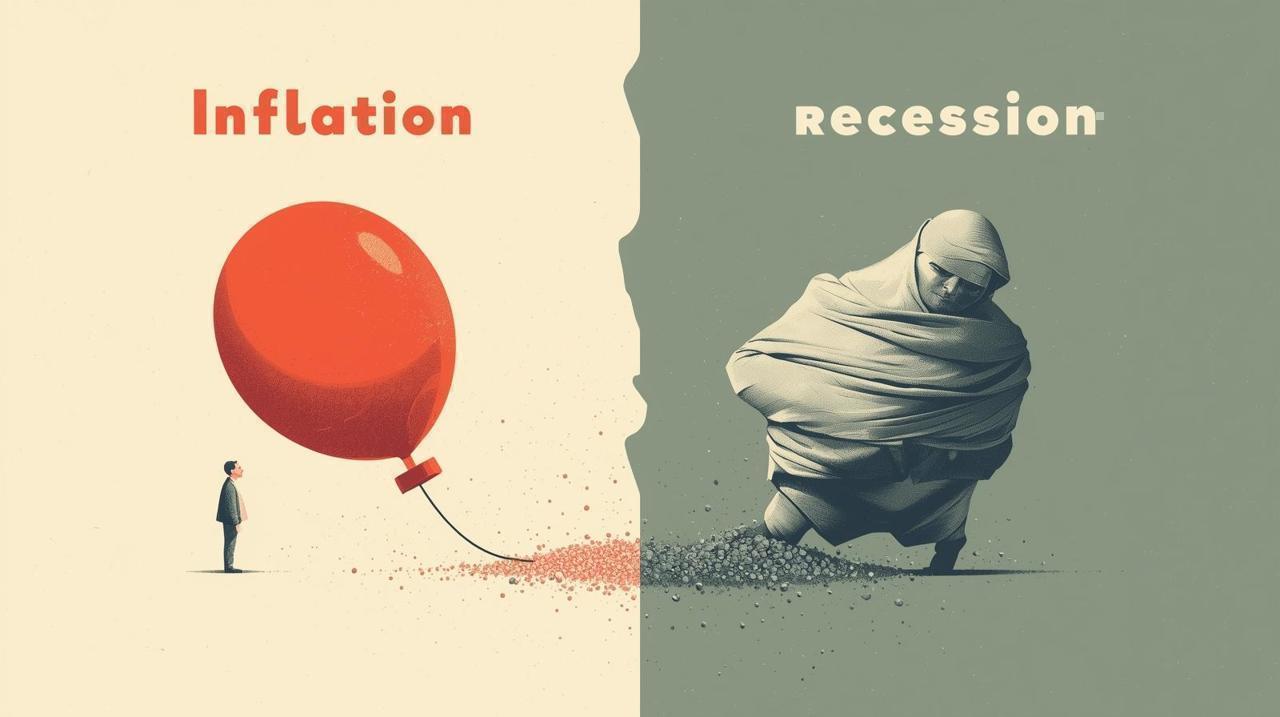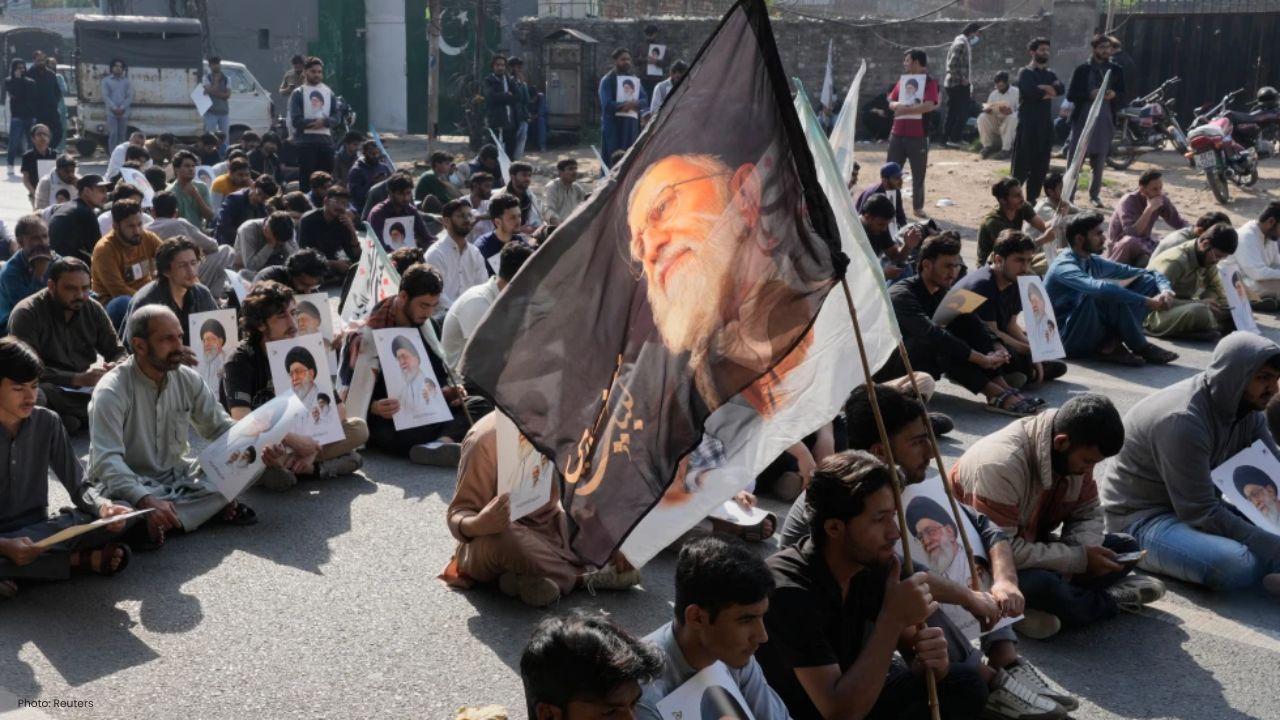
Post by : Sami Al-Rahmani
Terms like inflation and recession often dominate financial news, but for many people, they sound like distant economic jargon. In reality, both directly affect your personal savings, purchasing power, and financial security. Understanding the difference between inflation and recession — and how to prepare for each — is essential for protecting your money and building long-term financial stability.
This article breaks down what inflation and recession truly mean, how they impact your day-to-day finances, and the smart money strategies you can use to safeguard your savings.
Inflation refers to the rise in prices of goods and services over time. When inflation increases, the value of money decreases, meaning your rupee, dollar, or euro doesn’t buy as much as it used to.
For instance, if a loaf of bread cost ₹30 last year and now costs ₹33, that’s inflation at work. While small levels of inflation are normal and even healthy for a growing economy, high or prolonged inflation can erode savings and make it harder for families to manage their monthly expenses.
Inflation can occur for several reasons, including:
Demand-pull inflation: When consumer demand exceeds supply, businesses raise prices.
Cost-push inflation: When production costs (like wages, fuel, or raw materials) increase, companies pass those costs on to consumers.
Monetary policy: When central banks print more money or lower interest rates, it can lead to an excess of money chasing limited goods.
Global factors: Supply chain disruptions, oil price hikes, or geopolitical tensions can all contribute to inflation.
In short, inflation is often a sign of economic growth—but too much of it can quickly turn that growth into financial strain.
Inflation impacts your savings in multiple ways:
Reduced purchasing power:
If your savings account earns 4% interest annually, but inflation is 6%, you’re effectively losing 2% of your money’s real value every year.
Increased living costs:
Everyday essentials — groceries, rent, healthcare, and fuel — become more expensive. This can force you to dip into savings or cut back on other goals.
Impact on investments:
Inflation tends to reduce returns from fixed-income instruments like bank deposits and bonds. However, assets like real estate, stocks, or commodities may perform better during inflationary periods.
Erosion of emergency funds:
Your emergency fund may lose value if kept idle in a low-interest account during high inflation years.
The good news is that you can protect and even grow your money during inflation. Here are a few smart strategies:
Diversify your investments: Don’t keep all your money in one place. Invest across asset classes like stocks, mutual funds, gold, and real estate.
Invest in inflation-beating instruments: Look for options like inflation-indexed bonds or equity mutual funds that tend to outperform inflation over the long run.
Review your savings goals annually: As prices rise, so should your savings targets. Adjust your contributions and budget accordingly.
Cut unnecessary expenses: Focus on value-based spending and eliminate wasteful costs that don’t add long-term benefit.
Maintain an emergency fund: Ideally, keep 6–12 months’ worth of expenses in a liquid account for safety.
A recession is a significant decline in economic activity that lasts for several months or more. It’s typically marked by rising unemployment, falling consumer spending, and decreased business investments.
Governments and economists officially declare a recession when a country experiences two consecutive quarters of negative GDP growth.
During recessions, companies may reduce hiring, people spend less, and economic confidence drops. The result? A slower economy and uncertainty for individuals and businesses alike.
Recessions can be triggered by multiple factors, including:
High inflation and rising interest rates (which reduce consumer spending)
Global economic shocks (like pandemics, wars, or trade disruptions)
Bursting of financial bubbles (such as real estate or stock market crashes)
Poor fiscal management or excessive government debt
In short, recessions often follow periods of rapid economic expansion or inflation that spiral out of control.
Recessions can be more visible in your daily life than inflation because they affect income stability and job security. Here’s how they impact personal savings:
Job losses and income reduction:
Many companies downsize during recessions, leading to layoffs or salary cuts. Without regular income, people may need to rely on their savings to survive.
Falling investment returns:
Stock markets often decline during recessions, affecting your investment portfolios, retirement funds, and property values.
Reduced consumer confidence:
People become cautious about spending, which slows the economy further — creating a cycle that takes time to recover from.
Credit tightening:
Banks may raise interest rates or become more selective about lending, making it harder to get loans or credit cards.
While recessions can feel unpredictable, smart financial planning can help minimize their impact:
Build a strong emergency fund: This should be your top priority. Having cash reserves covers you in case of job loss or reduced income.
Diversify your income streams: Freelancing, online businesses, or side hustles can offer extra income during uncertain times.
Reassess your investments: Shift to safer assets like government bonds, index funds, or dividend-paying stocks during high volatility.
Avoid unnecessary debt: Keep your credit card usage low and avoid taking on new loans unless essential.
Continue skill development: Investing in your professional skills can make you more employable even when the economy slows down.
While both inflation and recession affect your money, they do so in different ways.
| Aspect | Inflation | Recession |
|---|---|---|
| Definition | Rise in prices and fall in purchasing power | Decline in economic growth and employment |
| Effect on Savings | Reduces value of money | Reduces income and investment returns |
| Typical Response | Increase interest rates to control prices | Lower interest rates to stimulate growth |
| Consumer Behavior | Spend more before prices rise further | Spend less to save during uncertainty |
| Investment Strategy | Prefer real assets and equities | Prefer stable, low-risk investments |
Understanding these differences helps you prepare financially, no matter which phase the economy enters next.
Whether inflation is rising or a recession looms, the key to protecting your savings lies in consistent financial discipline and long-term planning.
Here’s how you can future-proof your finances:
Automate savings and investments: Consistency matters more than timing.
Stay informed: Keep track of central bank updates, inflation reports, and job market trends.
Avoid panic selling: Short-term volatility is natural; long-term investors benefit most from staying invested.
Prioritize health and insurance: Economic uncertainty can be tough, but medical emergencies without insurance can be financially devastating.
Maintain a growth mindset: Both inflation and recessions are cyclical — economies recover, and new opportunities always emerge.
Both inflation and recession are natural parts of the economic cycle, but their effects on your personal savings depend on how prepared you are. While inflation slowly erodes the value of money, recessions can threaten income stability — together, they remind us why financial literacy and planning ahead matter more than ever.
By diversifying investments, cutting unnecessary expenses, and staying disciplined, you can navigate uncertain times and continue to build wealth. Remember, financial strength isn’t about predicting the economy — it’s about being prepared for any outcome.










Iran Strikes UAE 167 Missiles 541 Drones Hit Dubai
Iran launches large-scale missile and drone assault on UAE forcing airport shutdowns and triggering

UAE Rejects Sudan Conflict Allegations at UN Human Rights Council
Emirati diplomat issues Right of Reply in Geneva dismissing accusations and urging accountability fo

NCM issues fog and low visibility warning in UAE
National Centre of Meteorology warns of fog and reduced visibility in coastal and internal areas, ur

UAE expresses full solidarity with Kuwait over maritime rights
UAE expresses full solidarity with Kuwait and urges Iraq to resolve maritime concerns through intern

Dubai Parks to Offer Free Medical Tests During Ramadan
Free health screening buses will provide eye, blood pressure and glucose tests across major Dubai pa

T20 World Cup India Prepare to Crack Spin Test in Super Eight
Bowling coach Morne Morkel confident Indian batters will regain rhythm against spinners as Super Eig